I Tracked Every Minute of My Work for 40 Days. Here's What Happened...
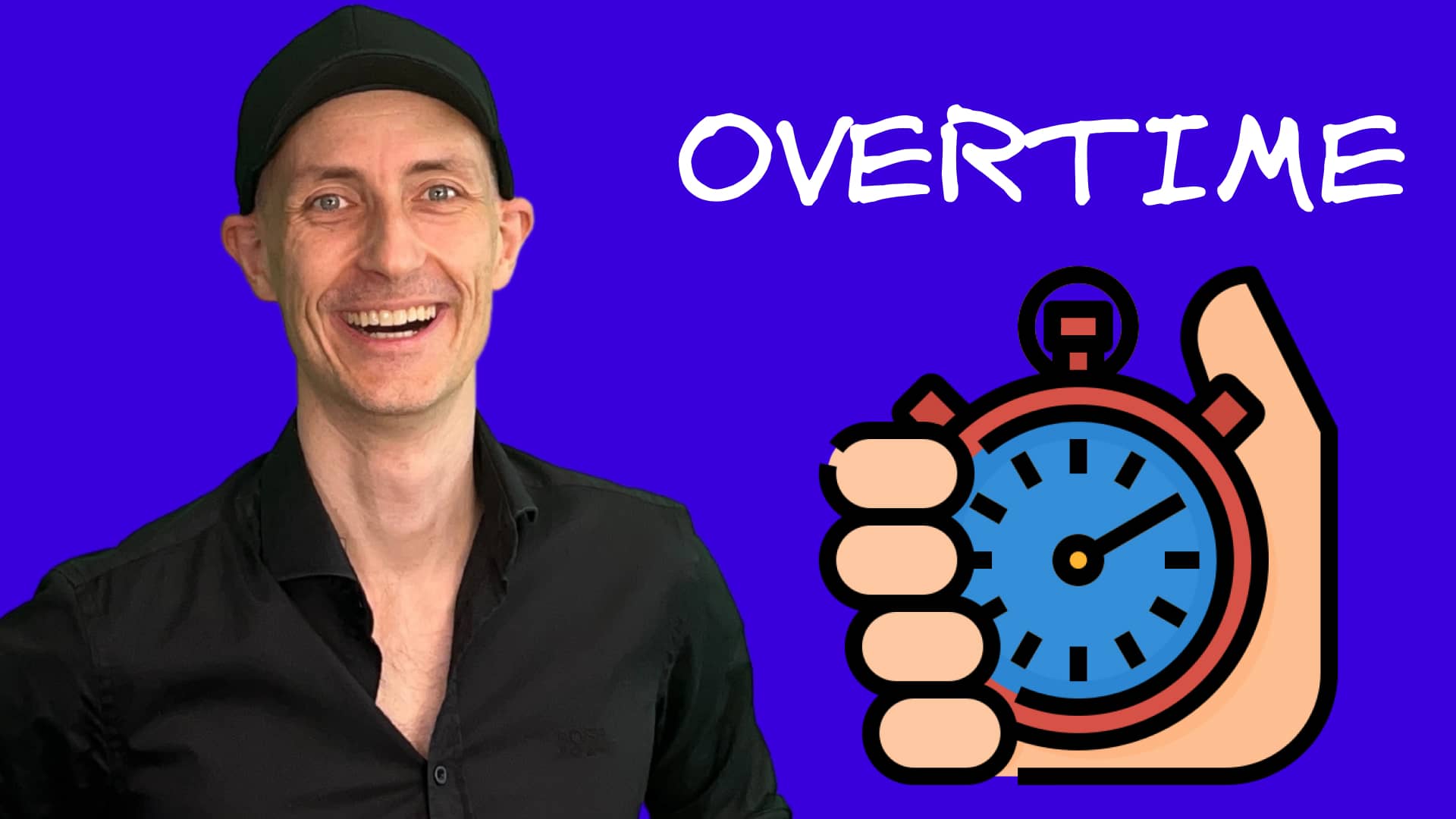
In April and May of this year, I did something crazy: I tracked every single minute of my work time for 40 days straight. Why? Because I jumped back into a struggling client project as a developer - something a CEO shouldn’t typically do. But the results were eye-opening, and I want to share what I learned.
The Numbers: A Substantial Time Investment
Over 40 days:
- 37 work days
- ~10 hours per day
- 6 days per week
- 360 total hours logged
At a hypothetical $100/hour freelance rate, that’s $36,000 worth of time. As a CEO, this isn’t how I should be spending my time.
A CEO should focus on:
- Resource allocation
- Setting and repeating the vision
- Sales (biggest clients, investors, hiring)
But there were good reasons, and valuable lessons learned.
I’m Till Carlos, a developer with over 25 years of experience. I’ve gone from freelancer to founding my own software agency. Now, I’m mostly focused on CEO tasks and creating content to help software teams become more effective.
Why Track Every Minute?
- Measure to improve: Without precise tracking, you can’t truly understand where your time goes.
- Raise the bar: Most people, myself included, work less than they think.
- Expand horizons: What could I achieve if I applied this level of focus to other areas?
- Force simplification: Limited time forces you to streamline processes.
- Skill sharpening: Getting back into coding improved my technical leadership.
With my “Rambo” action, I got the project back on track. I set a new quality standard for the team. There were several lessons learned—hence, this essay.
What’s in It for You?
- Your bar for hard work is probably too low
- See where the bar of quality can be
- Maybe you’re just curious why someone would be so crazy
- 🎁 (Download the tracking sheet)
Lesson 1: If You Don’t Measure, You Don’t Know
You need to track every hour. I created a custom spreadsheet to log my time in detail. This allowed me to categorize my work and analyze trends.
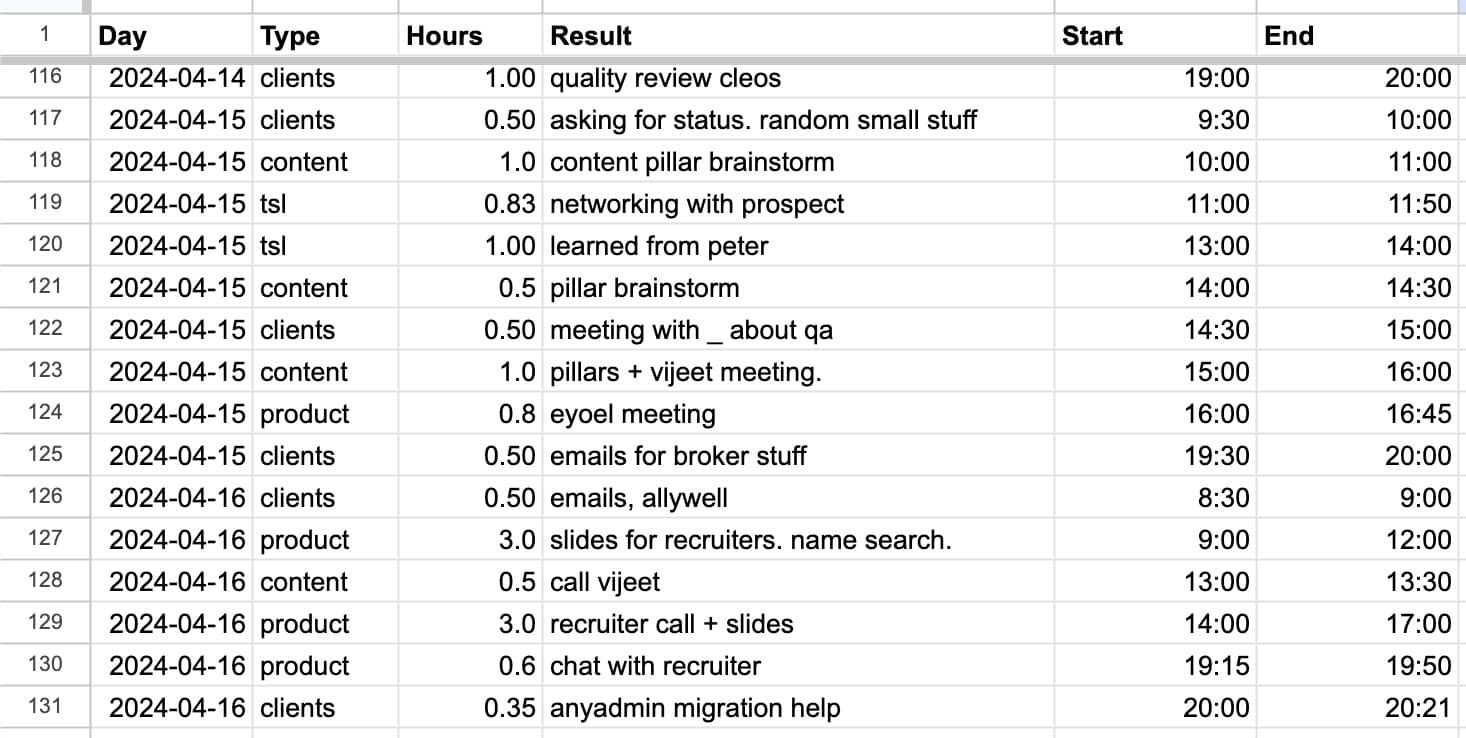
Lesson 2: Your Bar for Hard Work Is Probably Too Low
I thought I was working hard, but the data showed otherwise. In the early weeks, I was logging less than 40 hours - below a standard full-time job. This realization pushed me to increase my output significantly.
“Do not go gentle into that good night. Rage, rage against the dying of the light.”
How much do you actually work per week?
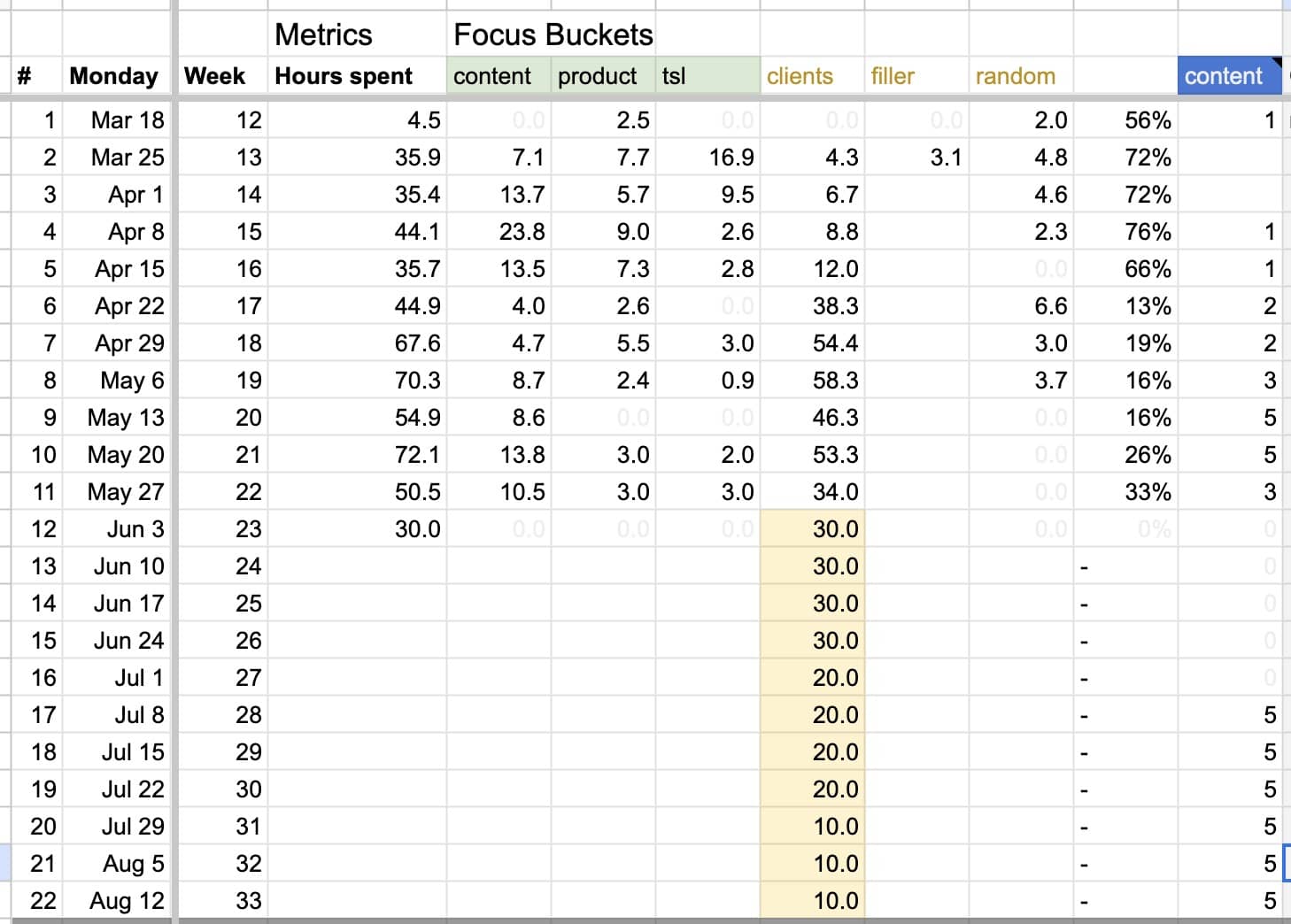
Lesson 3: It Expanded My Horizon
The main breakthrough: What would happen if I put the same effort into content?
Working 70 hours per week…
- Developer: Build/refactor one major feature
- Content Creator: 🤔 🤔 🤯 (The potential is mind-boggling)
Lesson 4: It Helped Me Simplify
Could I carve out 2 hours daily for content?
Why this is not crazy:
- I used the extra 2 hours for reflection
- I already had my content team—I couldn’t let them down
- But our workflow needed to change
Before: Complicated. I create for a week, the editor edits for a week. One item per week.
After: Simple. I talk about what happened in my dev journey. I record fast, and hand it over.
YouTube Responds to Effort
Results:
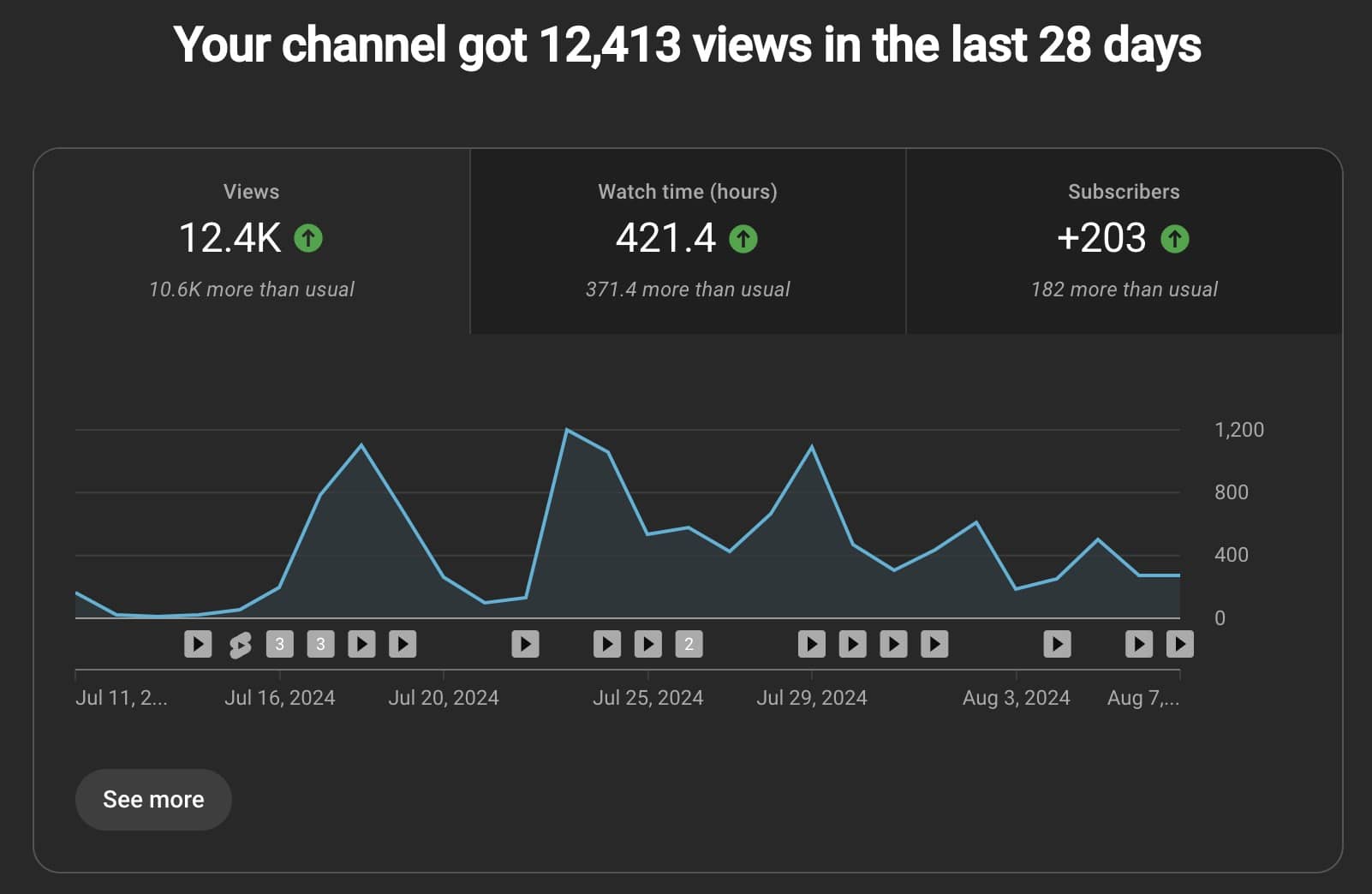
Lesson 5: I Got Good at Developing Again
I hadn’t coded for some time, so I had to get back into it.
Most importantly, I really grasped hotwire.dev. It’s a great technology, but it’s not as simple as everyone says. Complex UIs are always complex. Hotwire won’t change that.
Results for the Client
I set a quality standard for the whole team:
- More tests
- Better structure
- Full authorization
- More automated frontend tests
Download the tracking sheet:
tillcarlos.com/downloads
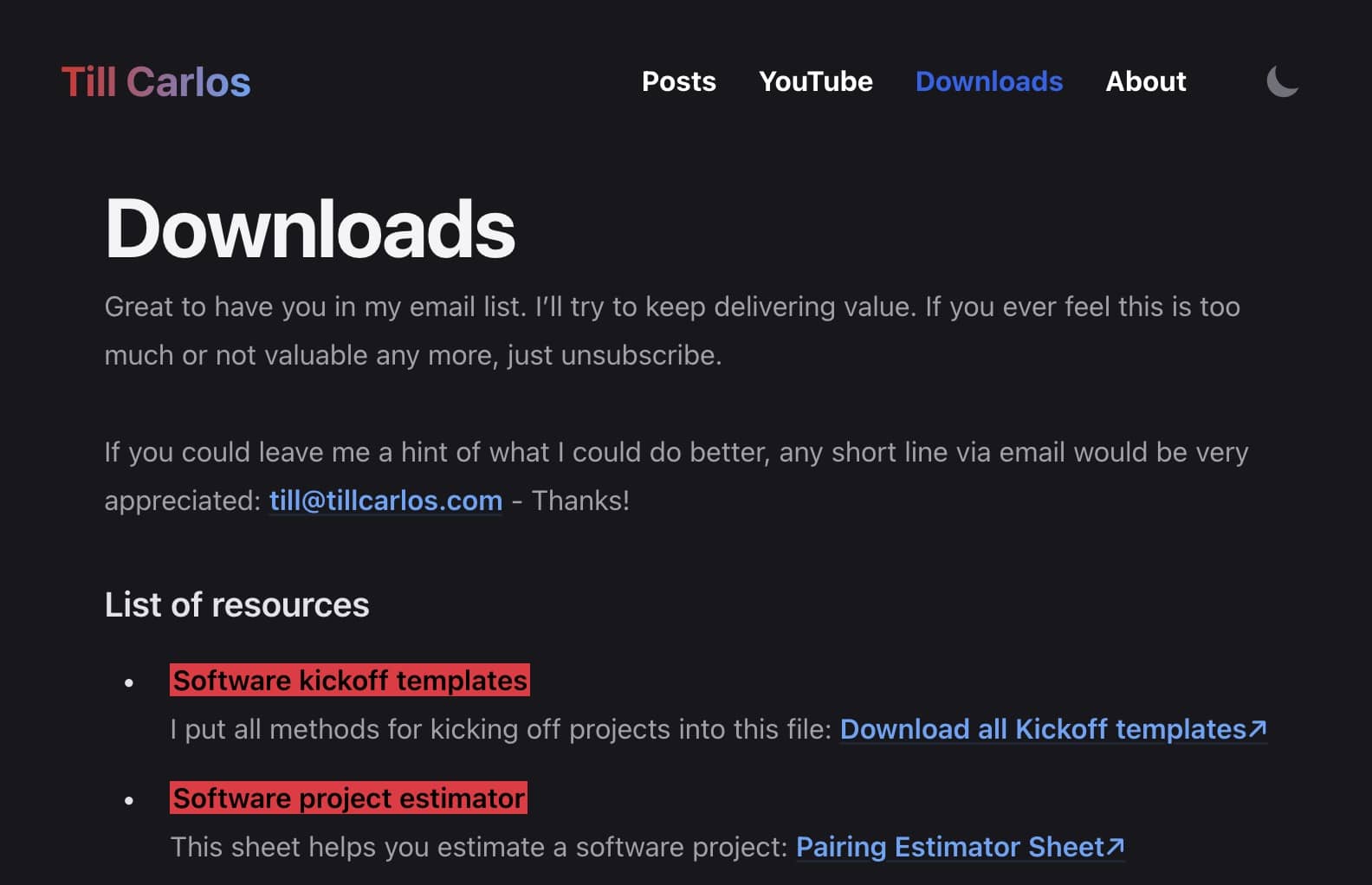
When was the last time you worked hard and focused on something?
